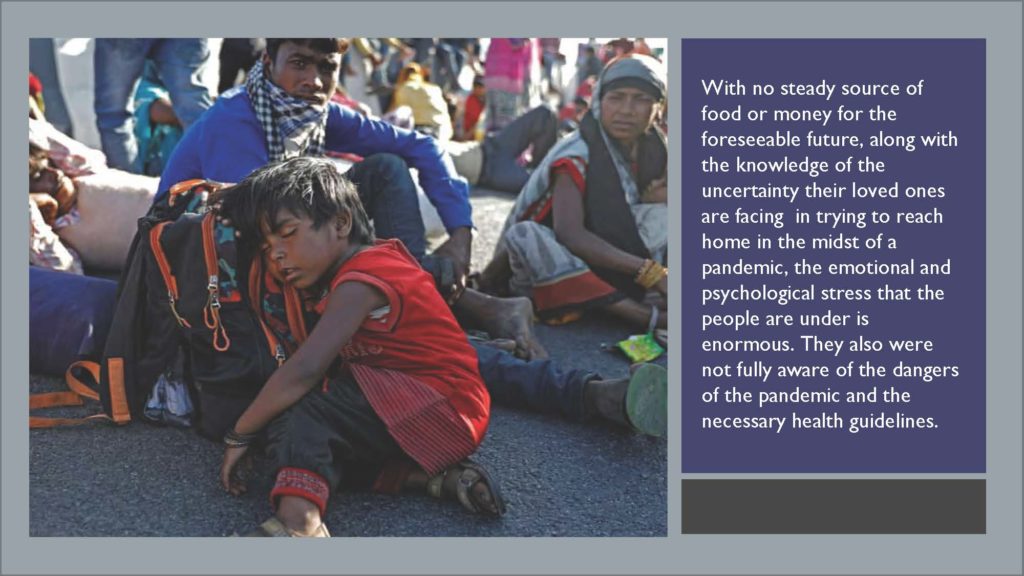Together in Hope: Struggles for and affirmation of human dignity in response to human trafficking, slavery, and forced migration
Plight of the Daily Wage Earners and the Poor
It is estimated that nearly 40 million individuals have been displaced within India during the COVID-19 inflicted lockdown. Many come to urban areas, working as daily-wage earners. The lockdown left these millions, with little or no savings in banks or in hand, stranded thousands of miles away from home. Their families were now also deprived and faced starvation.
The government did implement a number of initiatives to help them. Many NGOs, social welfare organizations, and individuals have reached out and begun relief campaigns hoping to ease some of their suffering. Religious bodies across the country are doing their best to aid and provide relief to the people. However, these efforts were not enough for the millions who were affected.
Since all transport had been shut down, they and their families had to walk thousands of miles home in terrible heat and with little sustenance. By the time the government had arranged transport; several million were already on the highways. Since social distancing etc. could not be followed, many of them are now being found COVID-19 positive on their return to their home states.
Maby are lost. Many families are separated. Many have died trying to reach their homes.
The Diocese of Durgapur operates close to the India-Bangladesh border. The poor majority in these areas work part of the year as farmers and the rest as daily wage earners. Due to the lockdown situation and the existing poverty, these areas are also hotspots for trafficking.
With no steady source of food or money for the foreseeable future, along with the knowledge of the uncertainty their loved ones are facing in trying to reach home in the midst of a pandemic, the emotional and psychological stress that the people are under is enormous. They also are not fully aware of the dangers of the pandemic and the necessary health guidelines.
While relief materials are important, they are temporary support. A bigger crisis awaits these families.
The first being that with the return of those who had been working outside, the rural economy will come under tremendous pressure unable to sustain the additional job and financial needs of the families.
Secondly, as a result of the first point, when the poor families are left in a desperate situation with no food and no money, they are far more vulnerable to the exploitation of traffickers, which is extremely dangerous.
It is in this vulnerable situation that collective and sustained efforts need to be made by the Government, NGOs, and all voluntary organizations so as to safeguard the lives and interests of the people in these areas.
It is together that we can overcome. It is together that we can win. It is only together that we have hope.
The Diocese of Durgapur, CNI

